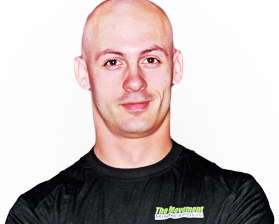
Guru in the fitness world has become synonymous with snake oil salesman. My buddy the glute guy, Bret Contreras, has a regular series of “Grill the Guru” posts and videos where he takes down pseudo-science and questionable justifications by well known fitness personalities. Being called a guru, to most people, would be taken as an insult.
But as so often happens guru has been appropriated and misused. It’s a Sanskrit term which has important meaning in Indian culture and tradition, and is used in Hinduism, Buddhism, Sikhism, and other religions and cultural traditions. The connotation in these traditions is a teacher – but much more than just a teacher. A guru is someone who has deep and expansive knowledge, as well as the varied abilities as mentor, counselor, guide, and journeyman with the ability to impart knowledge and wisdom.
Guru is far from a pejorative – it’s a revered position.
So we took this term of honor and ruined it as we often seem to do, because we apparently can’t have nice things.
But I think it’s a mistake to think of the word guru in this way, and I think more people would do well to have a guru.
If you were to exclusively follow my buddy Bret Contreras your training would be fairly strength-focused consist of large compound movements done for relatively low reps (1-5 in general) along with some higher rep accessory movements and a lot of glute and booty exercises for both low and high reps. You wouldn’t stress over nutrition too much, focusing on eating real food with lots of protein and not getting into a lot of supplements.
What if you only followed my wife, Jen Sinkler, for your fitness information? Well your training would be biased a bit more towards strength or sport and involve a lot of large compound movements with a lot of movement variation and rep ranges from low to high. You’d probably throw in some circuit workouts which are well-known to improve general fitness and work capacity and are usually fun. Nutritionally you’d follow sort of a Paleo-plus-cupcakes strategy of eating a lot of whole foods, keeping protein high, and not worrying about the occasional dessert or junk food. Your workout fashion would be on point.
If you followed my friend Mike Vacanti you’d pay a little more attention to your nutrition I’d wager – at least for a while – by diligently tracking your macros and making sure you hit the targeted proteins, fats, and carbs every day. You wouldn’t worry too much about how you got there as long as it was mostly real food sources, and you’d eat a fair amount of ice cream. Your training would look a lot like a recurring theme with a bit more focus on bodybuilding instead of maximal strength, lots of large compound movements combined with higher rep accessory work for the aesthetics.
Or, if you followed my pal Pat Flynn your training would be spartan but effective – using only a minimal complement of barbells and kettelbells to create workouts that are primarily strength based but short, difficult, and effective. There’s a good chance your journey would have started with a fairly-challenging fat loss program that would have you limiting what you eat to only the bare essentials, but after that you’d relax the reins a bit and focus on moving the big rocks and keeping your diet high in protein, good fats, and relatively low in added carbs or sugar.
What about someone who leans a little further towards a more extreme philosophy? If you were sold on the Paleo principals and you followed my friend Robb Wolf you would train primarily with large compound movements along with some hiking, carrying, or low intensity cardio. You might even be convinced to try out Brazilian jiu-jitsu. Following the Paleo principals would have you eating a lot of protein, a fairly high amount of good fat, and you’d keep your carbs really low. For most people this would work exceptionally well, but a few would notice the low carbs affecting their performance and ability to train – those folks would adjust upwards according to their tolerance until they find the sweet spot. You might care a bit more about where your food come from and you might pay more attention to things like circadian rhythms and how much natural light you get.
My point – if you haven’t been able to discern it yet – is that the broad strokes are all pretty much the same no matter who you listen to. As a result, when you take everything that one person says as gospel, and then take everything that someone else says as gospel and try to reconcile them you’ll get hung up on minor details that conflict but don’t matter.
This is the danger of not having a guru, or having more than one guru.
I’d argue that you’re better off trusting one source to be your mentor or “guru” until which time they either prove they’re not trustworthy or you determine that their approach and philosophy just doesn’t jive with your constitution – no matter how deep or correct their wisdom is.
I wouldn’t be ashamed to say I have a guru. What about you?


Leave a Reply